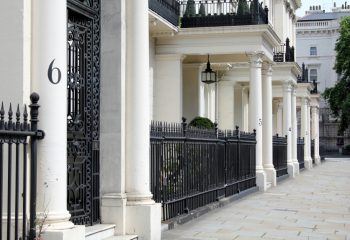The Cost of an Average Property for Each Mile of the London Marathon
Buying the average property in London would cost you £20,243 for each mile of the London marathon, according to online estate agent eMoov.
On Sunday, around 38,000 people will take to the streets of the capital for the 26.2-mile race. And while the runners may be able to enjoy London’s iconic landmarks along the way, many will have no hope of ever getting onto the property ladder in the capital.
Based on the average London house price of £530,368, a buyer would have to raise £20,243 for every mile of the London marathon to get into the housing market. Failing that, each of the 38,000 participants could contribute £14 each to jointly own one London home.
eMoov has calculated the average property price per mile to work out how much it will cost a buyer for each mile they run. The race starts in Greenwich…
Greenwich

The Cost of an Average Property for Each Mile of the London Marathon
Around the leafy start line of Greenwich Park, the price per mile has come down slightly from the London average, at £19,969 for the typical property, which costs £523,208.
Woolwich
Through the two to four mile mark, Woolwich will offer runners the cheapest price per mile of the whole route. At £290,915, the average home here will cost £11,103 per mile of the marathon.
Rotherhithe
As the runners push to the ten-mile mark, the property price per mile shoots up again to £19,401, as the average house price in Rotherhithe is £508,321.
Bermondsey
As the racers prepare to cross the Thames, the last area south of the river they pass through is Bermondsey. With an average house price of £546,974, a property here will cost £20,876 per mile.
Canary Wharf and the Isle of Dogs
North of the river, property isn’t any cheaper. In Canary Wharf, a typical property will cost a buyer £19,367 per mile. It does drop slightly in the Isle of Dogs, where buyers will face a price of £18,469 per mile at the 16-mile mark.
Monument
As the runners head into prime central London, the property price per mile picks up to £35,653, as the average house price in Monument is a huge £934,115.
St James’s Park
However, nowhere on the route costs more per mile than near the finish line at St James’s Park. A home here is a whopping £2,478,034, costing a runner almost £100,000 (£94,581) for each mile ran.
The CEO and founder of eMoov, Russell Quirk, comments on the findings: “Although the real obstacle of the day is the gruelling 26.2-mile slog across the capital, these figures paint a really clear picture of just how unobtainable a London property is for the majority of us.
“To think that for every mile of the route, each runner would need to raise close to the average UK salary just to get on the London ladder is a little sickening. I for one am glad the money raised is going to worthy causes and not to further fuelling the London property bubble.”








